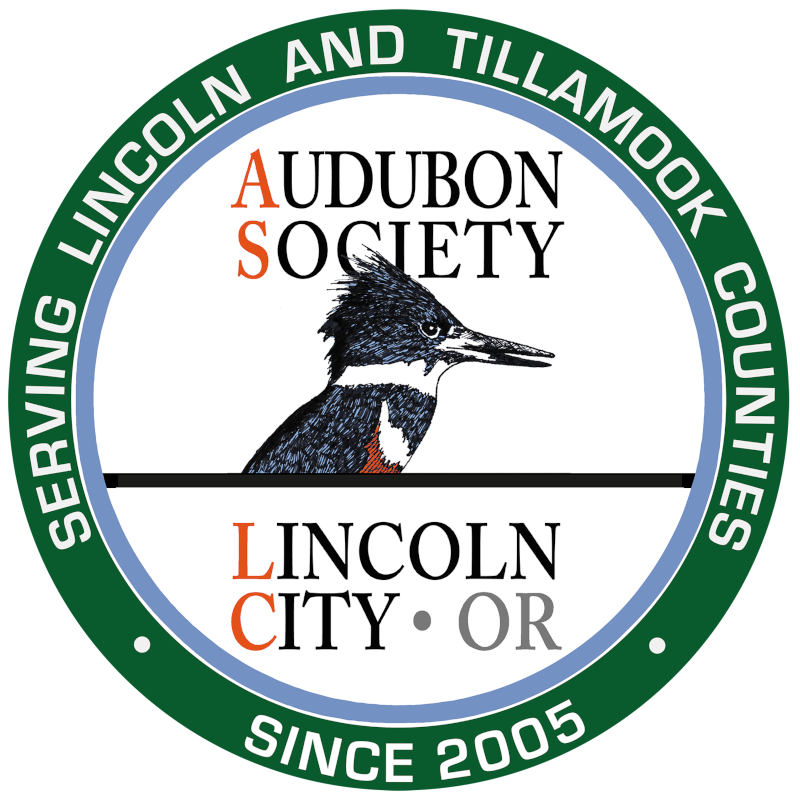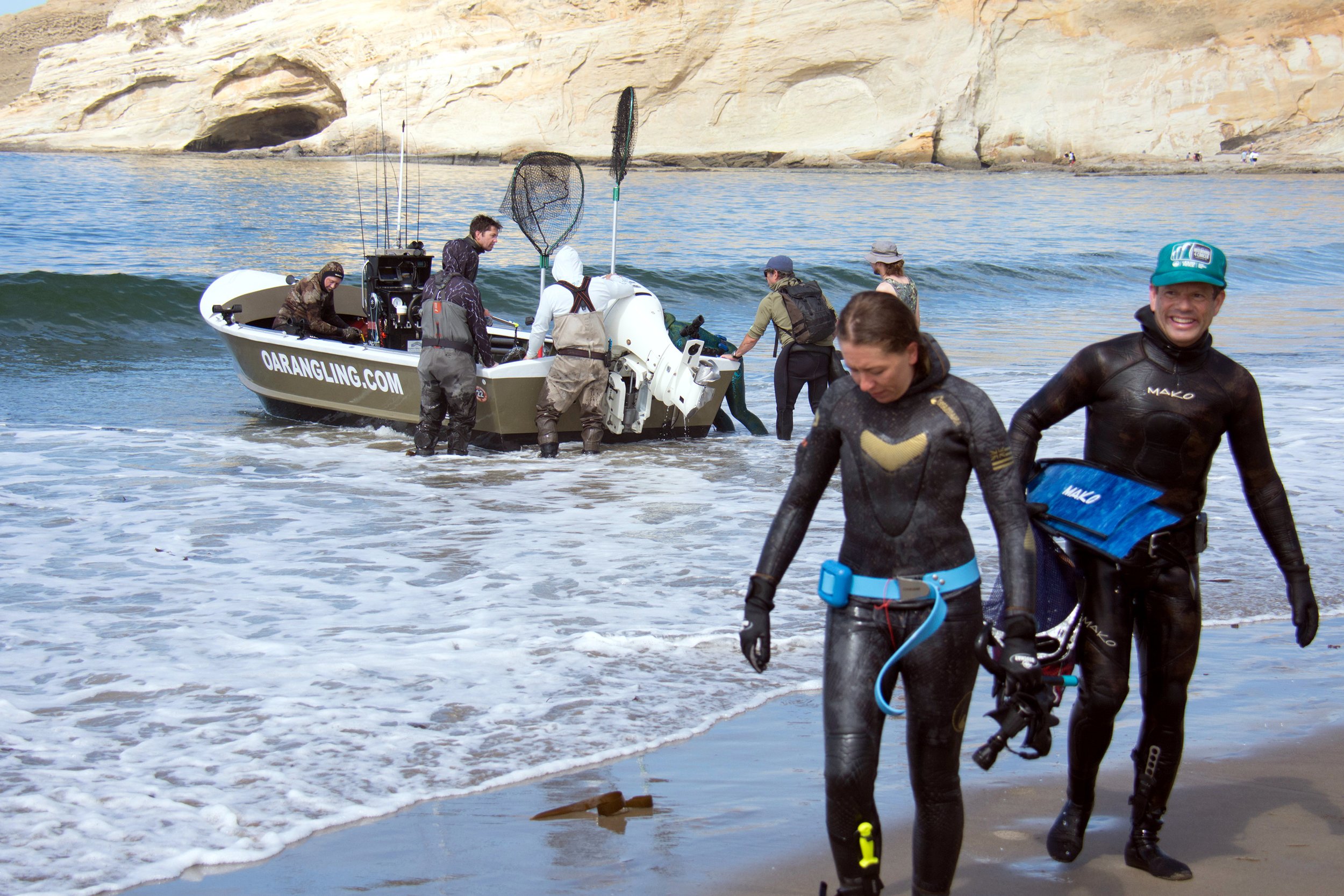Audubon at Work
This year, the Oregon Kelp Alliance (ORKA) launched a project to cull urchins from kelp beds at five sites from Cape Lookout in Tillamook to Macklyn Cove in Brookings.
This summer, Audubon Society of Lincoln City (ASLC) partnered with ORKA, Oar Angling Dory charter, Oregon Freedivers, Astoria SCUBA, Oregon Coast Aquarium, and others to cull urchins at Cape Kiwanda in Pacific City. Our effort followed a carefully designed approach that includes before and after monitoring by Reef Check Oregon. More than 20 volunteer divers worked in shifts to smash purple urchins, giving the remaining kelp plants a chance to once again thrive. ASLC assisted in community science monitoring to assess urchin health while providing local knowledge and logistical support. We had a great day working with the divers and with local dory boat Oar Angling towards a shared goal of healthy fish habitat.
Bull kelp is an annual seaweed that thrives in cold rocky waters forming thick beds on subtidal rocks. Bull kelp forests provide critical habitat for diverse marine life, protect shores from erosion, and reduce ocean acidification through carbon sequestration. Read more (PDF)…
In 2017, Oregon divers noticed that our west coast kelp forests were rapidly disappearing. The cause: Purple sea urchins. Normally kept in check by sea stars, the urchin population exploded when our sea stars were virtually wiped out a few years ago by Sea Star Wasting disease, which was caused by warming ocean temperatures. Without predators, voracious urchins wiped out our magnificent kelp forests. Purple urchins are not bad but the ecological imbalance threatens kelp forests as well as the fishing and tourism industries dependent on them. Read more...
Our day restoring kelp at Cape Kiwanda was fun, safe, and successful. It demonstrates that community groups can work together to do something to offset the impacts of climate change. Kelp restoration at Cape Kiwanda and elsewhere along the Oregon coast will require a sustained effort. Urchin culling through a scientific approach is just one of several projects aimed at restoring kelp forests. Others include urchin ranching, replanting kelp, and reintroducing sunflower stars.




